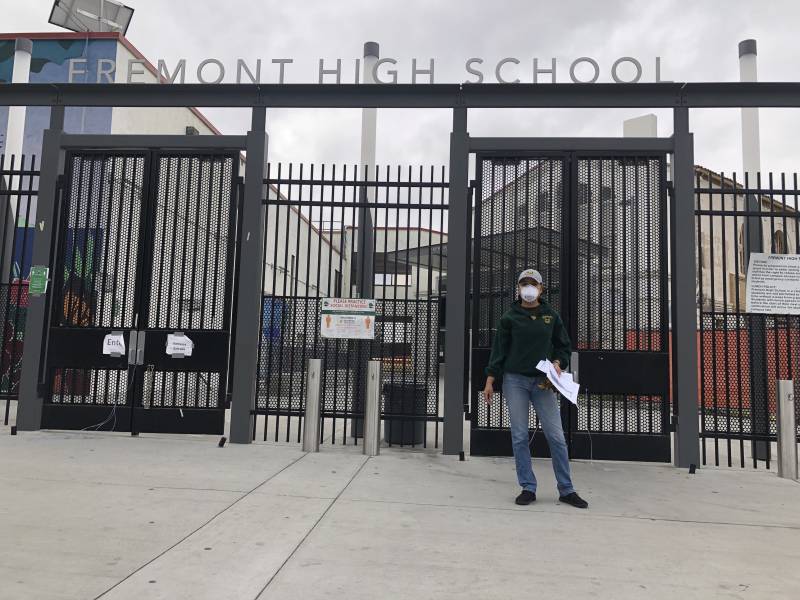Nidya Baez, Fremont High School's assistant principal, said she was able to survey about 80% of the school's nearly 800 students and found that 335 of them lacked computers at home, while 177 had no internet service. She said some families who don't speak English fluently or don't have credit cards are having difficulty signing up for the free internet services that some providers are temporarily offering.
"I feel like a failure," Baez said. "It's incredibly frustrating to not be able to give our families a clear-cut response with, 'Here's how you can do this.' And I think it's incredibly frustrating to see that when our students are trying not to fail."
As reported by EdSource, school districts in some parts of California are attempting to jump-start their own solutions.
Anthony Davis, the chief technology officer for the Kern County Office of the Superintendent of Schools, told EdSource that his county has installed Wi-Fi hot spots at over 180 community sites, including schools, so students or their families can drive there to download online materials.
In Oakland, Baez longs for a similar initiative that can offer uniform access for all students in the district.
"We have families that span different schools. So perhaps at one school they're getting a lot of support because that school has some kind of program where they are giving out devices or had access to devices like hot spots," said Baez, noting that Fremont High doesn't have anywhere near the resources necessary to meet that digital demand. "And so it just confuses families."
She described how the family of one of her students from East Oakland recently tried to set up a free account with an internet provider and were placed on hold for hours before eventually being disconnected.
"But they are going to try again," Baez said. "You know why? Because it's about their kid getting internet so they can do their work. But I don't think that's fair. I think about the many other kids all over this country that are not poor. You know, they already have those resources at home. They don't have to do all that."

